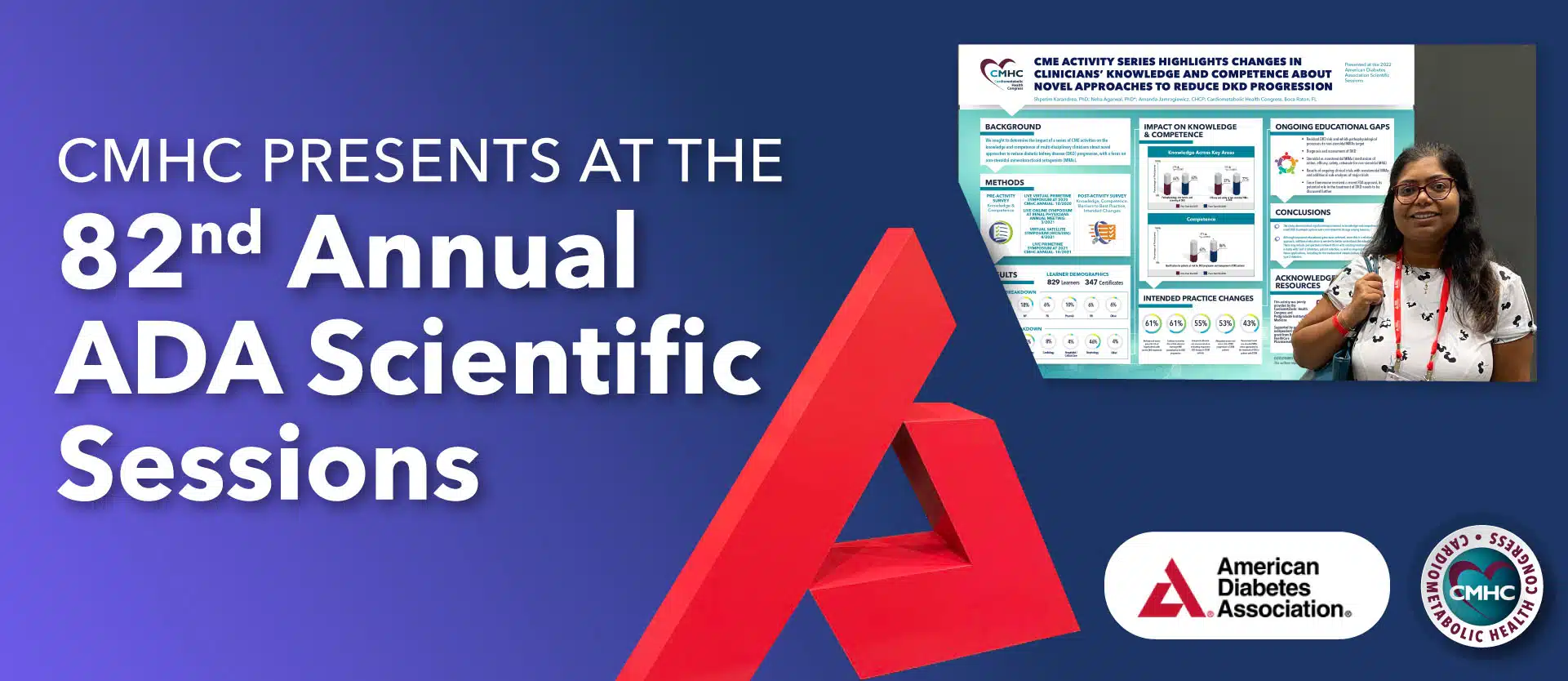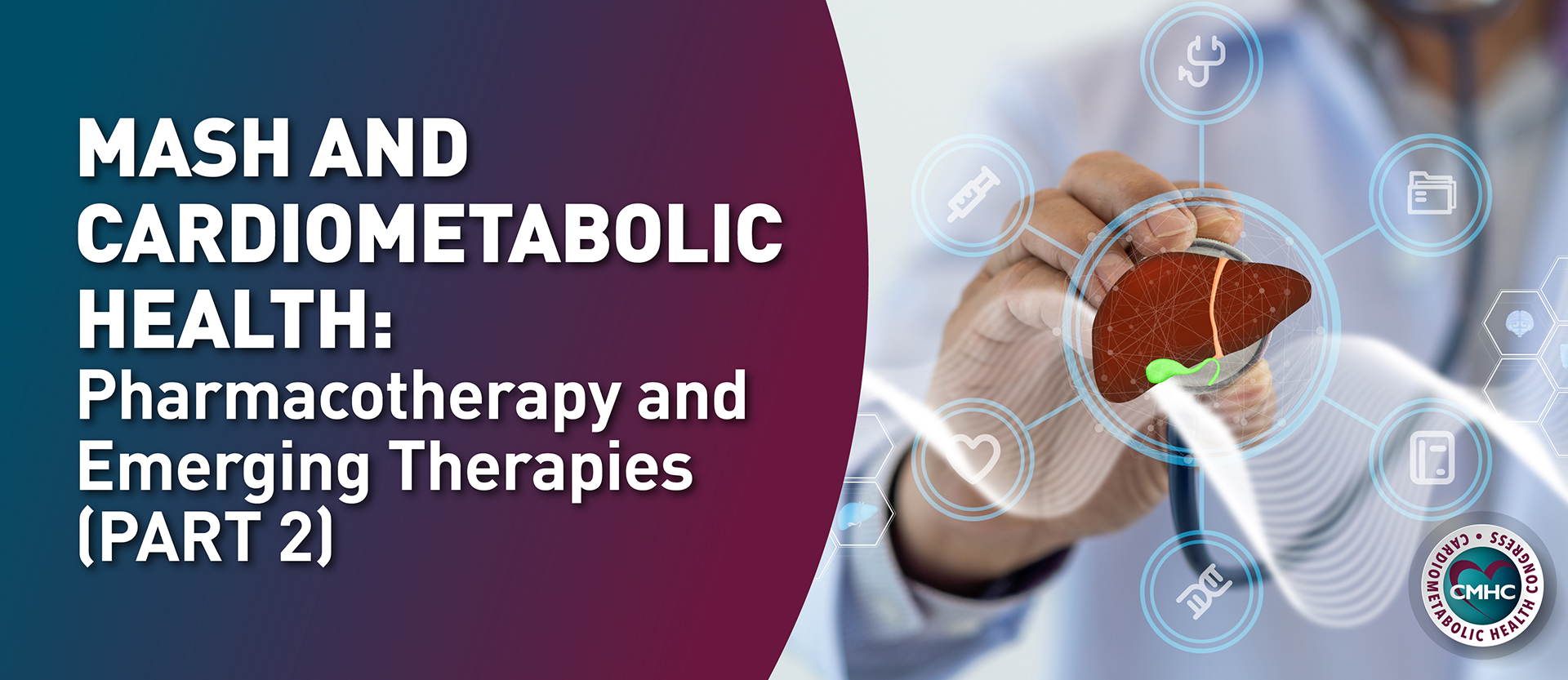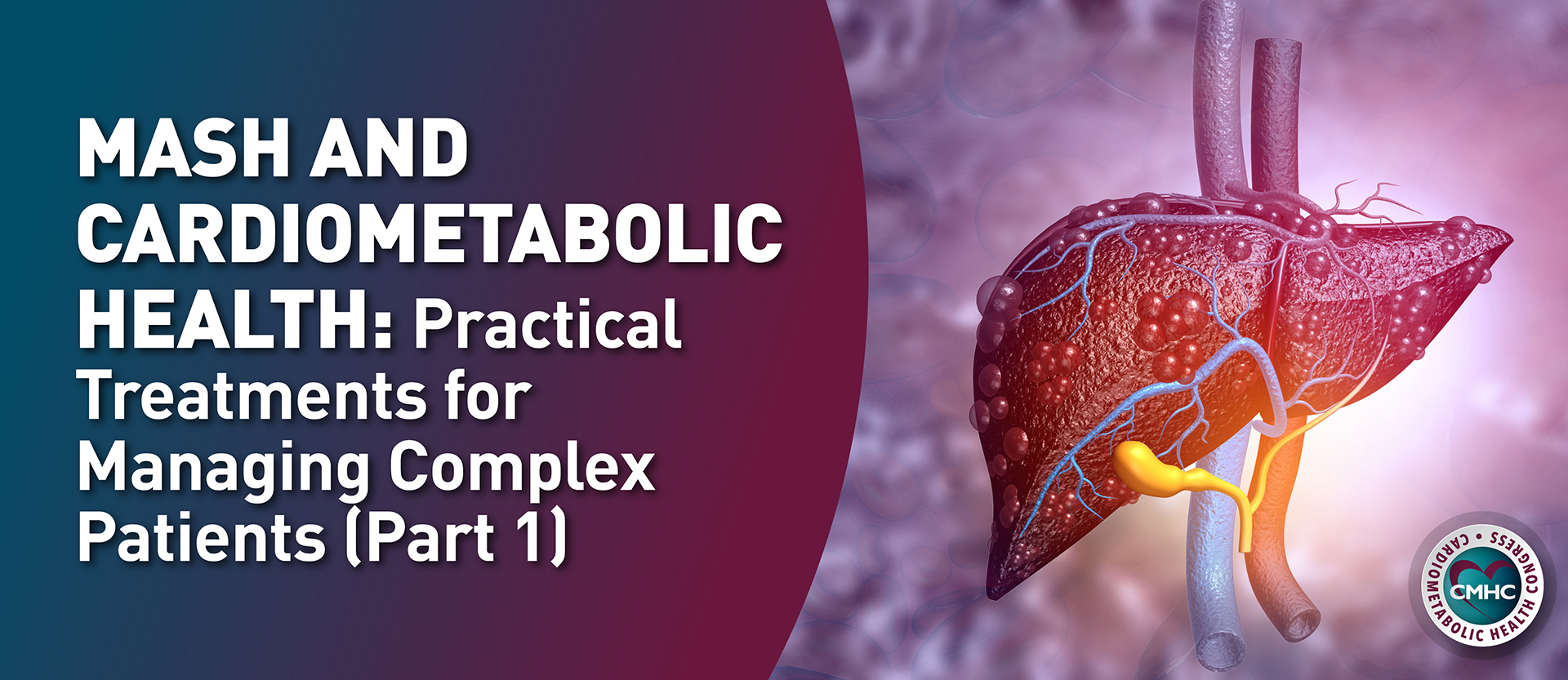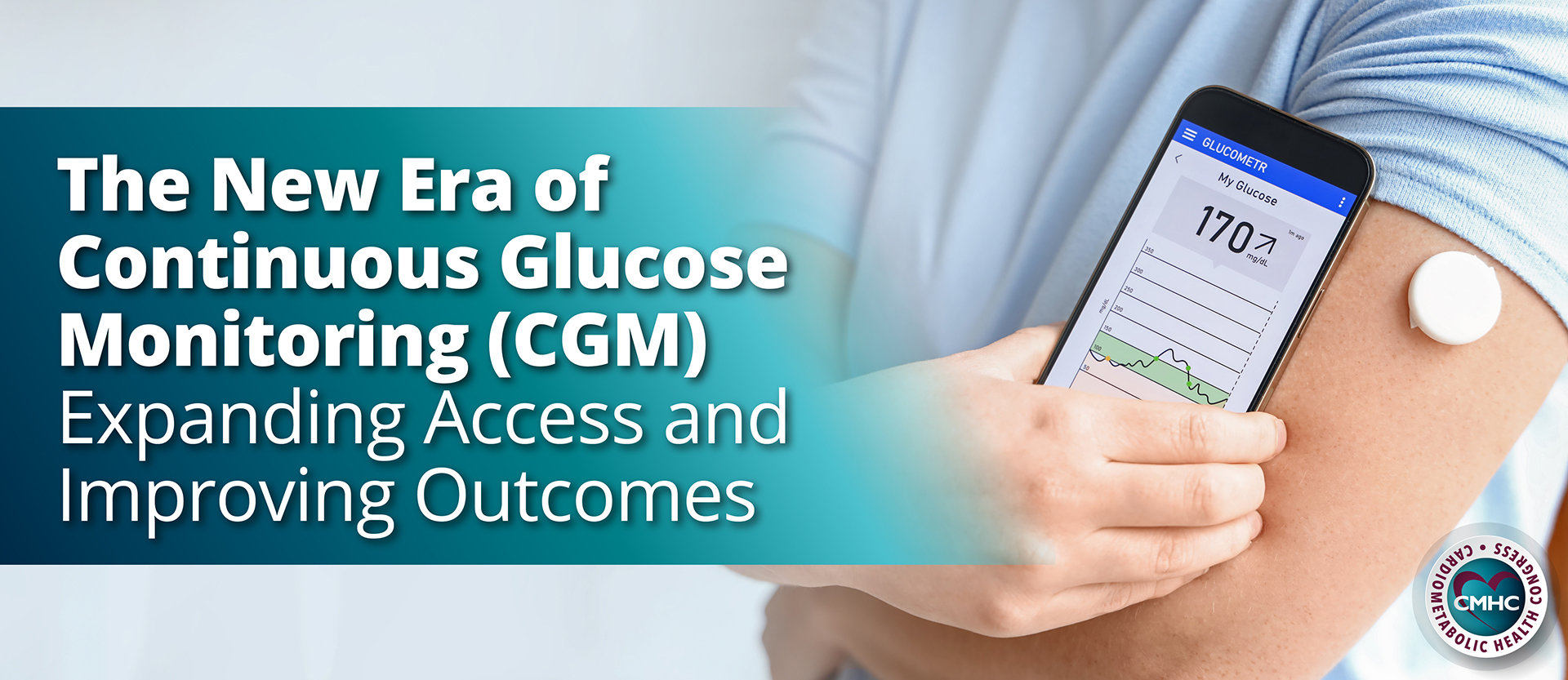Each year, leading physicians, scientists, and health care professionals from around the world gather for the American Diabetes Association (ADA) Scientific Sessions. These sessions focus on diabetes research, prevention, and care, and is where key opinion leaders in the field often unveil cutting-edge research, treatment recommendations, and advances toward a cure for diabetes. On June 3-7, 2022, more than 18,000 attendees gathered in New Orleans, Louisiana, to view 2,800 original research presentations, interact with leading diabetes experts, and participate in professional networking. The Cardiometabolic Health Congress (CMHC) was honored to present 524-P: CME Activity Series Highlights Changes in Clinicians’ Knowledge and Competence about Novel Approaches to Reduce DKD Progression at these 82nd Annual Scientific Sessions.
Project summary
Because diabetic kidney disease (DKD) is one of the most common complications of diabetes and has significant impact on patient morbidity and mortality, novel approaches to target DKD progression are needed. Between October 2020 and October 2021, the educational programming team at Cardiometabolic Health Congress (CMHC) organized four virtual and in-person symposia designed to educate multidisciplinary clinicians about screening guidelines, available treatments, and clinical advances in DKD. Participants in the CMHC symposia included 829 physicians and nonphysician health professionals from several medical specialties that manage patients with diabetes who are high-risk for developing DKD. The activity was jointly provided by CMHC and Postgraduate Institute for Medicine, and was supported by an independent educational grant from Bayer HealthCare Pharmaceuticals, Inc.
Results
Based on scores from assessments taken by participants before and after they completed the educational symposia, a significant increase in knowledge and competence was observed regarding: the pathophysiology of DKD; emerging nonsteroidal mineralocorticoid antagonists (MRAs) for DKD treatment; identifying patients at risk for DKD progression; and management of DKD patients. Post-activity evaluation reflected that 99.7% of learners indicated that information via these activities could be used in their practice, and most participants reported that they intended to change their practice based on information received, including monitoring clinical trial advances with nonsteroidal MRAs, evaluating the risk of potential hyperkalemia with DKD treatments, and screen for risk of DKD progression.
Discussion
Neha Agarwal, PhD, senior clinical manager at CMHC and co-author of the investigation, was in New Orleans to deliver the team’s poster and discuss the findings with the many attendees of the ADA’s Scientific Sessions. “We chose to look at education outcomes in DKD specifically because there are knowledge gaps even among kidney specialists in terms of screening for high-risk individuals and identifying which patients are good candidates for some of the newer DKD treatments” she remarked. “The results of the pre- and post-course assessments reflect that CMHC’s live education is effective in significantly increasing provider competence in the gaps we identified. This indicates to us that this model of health education delivery is effective, and is a great supplement to our annual conferences held throughout the year.”
Key takeaway
Based on outcomes assessment, CMHC’s curriculum led to significant improvement in knowledge and competence related to novel DKD treatment options and commitment to change among learners. However, additional education is needed to better understand the role of novel nonsteroidal MRAs for treating DKD, including perspectives on how they fit with existing treatment options (notably with SGLT-2 inhibitors), guidelines for patient selection, and to examine ongoing trials for additional applications for these agents, particularly for the treatment of nondiabetic chronic kidney disease.
View the poster CMHC presented at the 2022 ADA Scientific Sessions
Sources


















